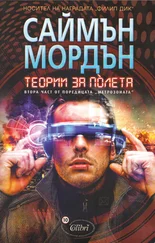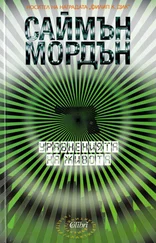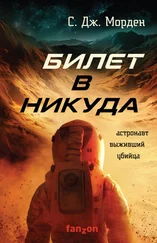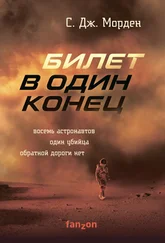Everything was perfect, and still, and still…
He picked up his glasses from where he’d thrown them. The same old room snapped into focus: the remnants of Pif’s time with him still scattered across her old desk, the same pot plants existing on a diet of cold coffee, the light outside leaking in around the yellowed veins of the Venetian blinds.
Sound leaked in, too: sirens that howled toward the crack of distant gunfire, carried on cold, still winter air. Banging and clattering, hammers and drills, the reverberations of scaffolding. A tank slapping its caterpillar tracks down on the tarmac.
None of it loud enough to distract him from the hum of the fluorescent tube overhead.
He opened a drawer and pulled out a sheet of printed paper which he placed squarely in front of him. He stared at the symbols on it, knowing the answer was there somewhere, if only he knew where to look. He turned his wedding ring, still a cold and alien presence on his body, in precise quarter-circles.
Time passed. Voices in the corridor outside grew closer, louder, then faded.
Petrovitch looked up suddenly. His eyes narrowed and he pushed his glasses back up his nose. His heart spun faster, producing a surge of blood that pricked his skin with sweat.
Now everything was slow, deliberate, as he held on to his idea. He reached for a pencil and turned the sheet of paper over, blank side to him. He started to scratch out a diagram and, when he’d finished, some numbers to go with it.
Petrovitch put down the pencil and checked his answer.
“ Dubiina, ” he whispered to himself, “ durak, balvan .”
The ornate sphere had taunted him from across the desk for the last time. He was going to be its master now. He reached over and fastened his hand around it, then threw it in the air with such casual defiance that would have had his head of department leaping to save it.
He caught it deftly on its way down, and knew that it would never have to touch the floor again.
He carried it to the door, flung it open, and stepped through. The two paycops lolling beside the lift caught a flavor of his mood. One nudged the other, who turned to see the white-blond hair and tight-lipped smile of Petrovitch advancing toward them at a steady gait.
“Dr. Petrovitch?” asked one. “Is there a problem?”
Petrovitch held the sphere up in front of him. “Out of the way,” he said. “Science coming through.”
He ran down the stairs, two stories, sliding his hand over the banister and only taking a firm hold to let his momentum carry him through the air for the broad landings. Now was not the time to wait, foot-tapping, for a crawling lift car that gave him the creeps anyway. Everything was urgent, imminent, immanent.
Second floor: his Head had given him two graduate students, and he had had little idea what to do with them. The least he could do to make up for several months of make-work was to include them in this. He needed witnesses, anyway. And their test rig. Which may or may not be completed: Petrovitch hadn’t seen either student for a week, or it might have been two.
Either way, he was certain he could recognize them again.
He kicked the door to their lab space open. They were there, sitting in front of an open cube of wood, a cat’s cradle of thin wires stretched inside. An oscilloscope—old school cathode tube—made a pulsing green line across its gridded screen.
The woman—blonde, skin as pale as parchment, eyes gray like a ghost’s… McNeil—yes, that was her name—glanced over her shoulder, her gray eyes growing impossibly round when she saw Petrovitch’s expression and what he was carrying.
“You’ve finished it.”
“This? Yeah, about a week ago. Should have mentioned it, but that’s not what’s important now.” He advanced on a steel trolley. In time-honored fashion, new equipment was built in the center of the lab. The old was pushed to the wall to be cannibalized for parts or left to fossilize. “Do either of you need any of this?”
He pointed to the collection of fat transformers on the top shelf. When he squatted down to inspect the lower deck, he found some moving coil meters and something that might have been the heavy-duty switching gear from a power station.
McNeil and the man—as to his name, Petrovitch’s mind was too full to remember it—looked at each other. Petrovitch waited all of half a second for a reply before seizing the trolley in his free hand and trying to tip it over. Some of the transformers were big ferrite ones, and he couldn’t manage it one-handed.
“You,” and he still couldn’t remember his name, “catch.”
He threw the sphere and, without waiting to see if it had a safe arrival, wedged his foot under one of the trolley’s castors and heaved. The contents slid and fell, collecting in a blocky heap on the fifties lino.
He righted the trolley and looked around for what he needed. “Power supply there,” he pointed, and McNeil scurried to get it. “That bundle of leads there. Multimeter, any, doesn’t matter. And the Mukhanov book.”
The other student was frozen in place, holding the sphere like it was made of crystal. Dominguez, that was it. Had problems pronouncing his sibilants.
“You all right with that?”
Dominguez nodded dumbly.
The quantum gravity textbook was the last thing slapped on the trolley, and Petrovitch took the handle again.
“Right. Follow me.”
McNeil trotted by his side. “Dr. Petrovitch,” she said.
And that was almost as strange as being married. Doctor. What else could the university do, but confer him with that title as soon as was practically possible?
“Yeah?”
“Where are we going?”
“Basement. And pray to whatever god you believe in that we’re not over a tube line.”
“Can I ask why?”
“Sure.” They’d reached the lift. He leaned over the trolley and punched the button to go down.
“Okay,” she said, twisting a strand of hair around her finger. “Why?”
“Because what I was doing before wasn’t working. This will.” The lift pinged and the door slid aside. Petrovitch took a good long look at the empty space before gritting his teeth and pushing the trolley inside. He ushered the two students in, then after another moment’s hesitation on the threshold, he stepped in.
He reached behind him and thumbed the stud marked B for basement.
As the lift descended, they waited for him to continue. “What’s the mass of the Earth?” he said. When neither replied, he rolled his eyes. “Six times ten to the twenty four kilos. All that mass produces a pathetic nine point eight one meters per second squared acceleration at the surface. An upright ape like me can outpull the entire planet just by getting out of a chair.”
“Which is why you had us build the mass balance,” she said.
“Yeah. You’re going to have to take it apart and bring it down here.” The door slid back to reveal a long corridor. “Not here here. This is just to show that it works. We’ll get another lab set up. Find a kettle. Stuff like that.”
He pushed the trolley out before the lift was summoned to a higher floor.
“Doctor,” said Dominguez, finally finding his voice, “that still does not explain why we are now underground.”
“Doesn’t it?” Petrovitch blinked. “I guess not. Find a socket for the power supply while I wire up the rest of it.” He took the sphere from Dominguez and turned it around until he found the two holes. His hand chased out a couple of leads from the bird’s nest of wires, spilling some of them to the floor. The lift disappeared upstairs, making a grinding noise as it went.
They worked together. McNeil joined cables together until she’d made two half-meter lengths. Dominguez set up the multimeter and twisted the dial to read current. Petrovitch plugged two jacks into the sphere, and finally placed Mukhanov and Winitzki’s tome on the floor. He set the sphere on top of it.
Читать дальше

![Саймон Морден - Билет в никуда [litres]](/books/388091/sajmon-morden-bilet-v-nikuda-litres-thumb.webp)
![Саймон Морден - Билет в один конец [litres]](/books/395533/sajmon-morden-bilet-v-odin-konec-litres-thumb.webp)









